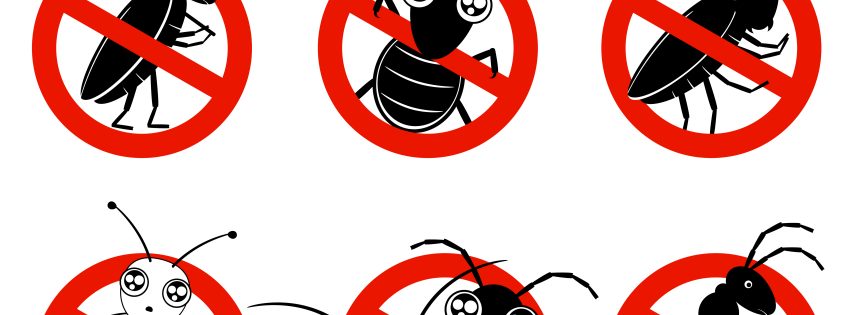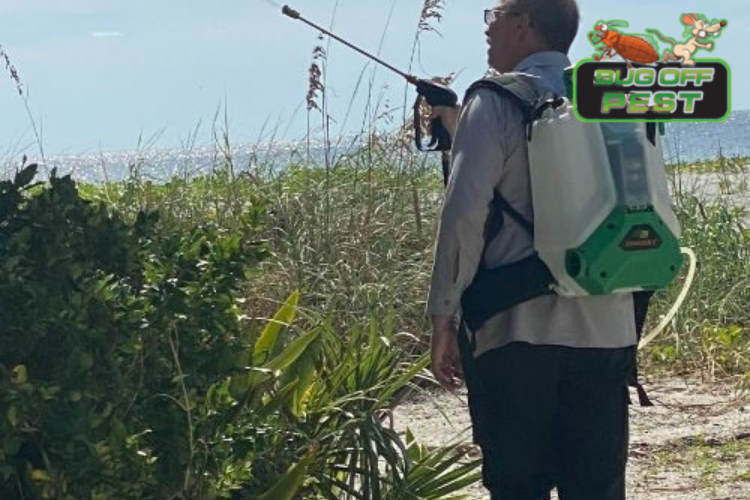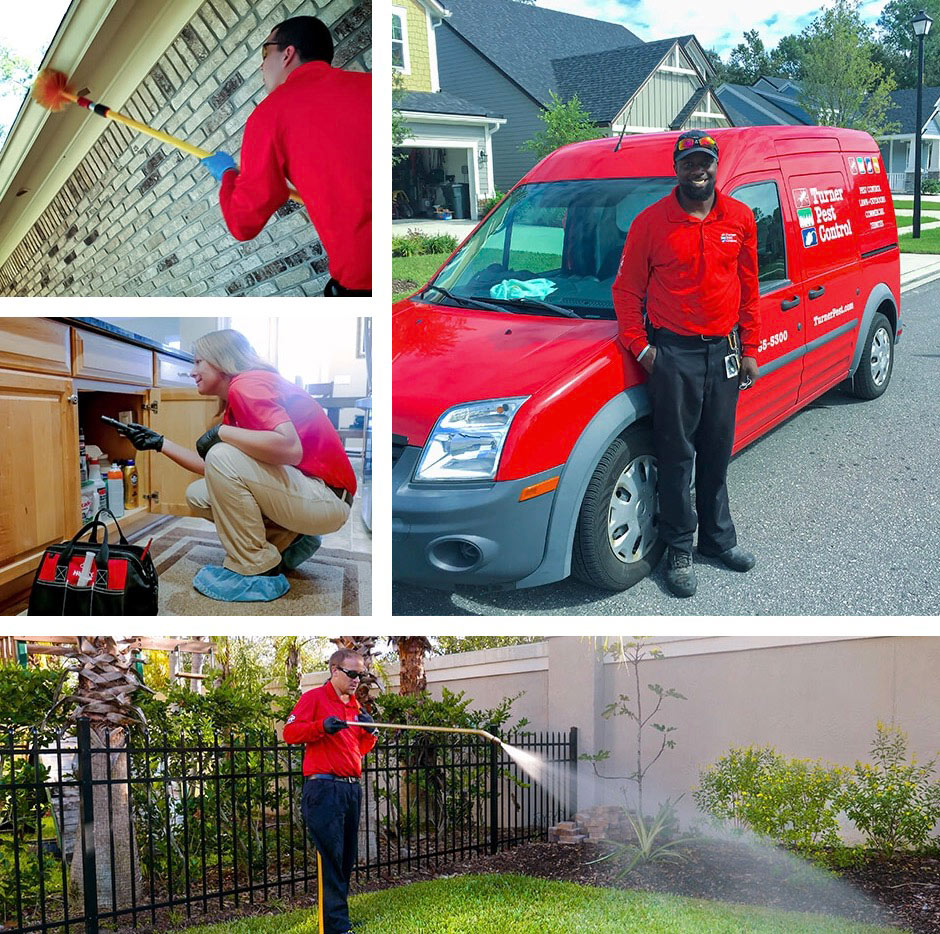Uncover the Importance of Parasite Control in Keeping a Healthy And Balanced Setting and Treatment Methods

The Duty of Bugs in Communities
Bugs, typically viewed only as nuisances, play a diverse role in environments that is vital for preserving environmental equilibrium. They contribute considerably to numerous ecological procedures, including pollination, nutrient biking, and parasite control. As an example, numerous insect varieties, such as butterflies and bees, are essential pollinators for a wide variety of plants, which subsequently supports biodiversity and food production.
In addition, pests function as target for numerous killers, creating a crucial link in food internet. This connection makes sure the survival of various varieties and helps regulate populations within environments (Termite treatment Port Charlotte). Decomposer insects, such as certain beetles and fungis, are instrumental in breaking down natural issue, thus enhancing dirt and assisting in vitamins and mineral recycling.
Alternatively, while insects can be helpful, their overpopulation or invasion into non-native environments might interrupt these ecological functions. This intricacy emphasizes the value of comprehending parasite characteristics, as efficient pest monitoring approaches must take into consideration both their environmental roles and potential influences on human tasks. Balancing pest existence while minimizing damage is vital for preserving the honesty of ecological communities and making certain agricultural performance.
Wellness Risks Related To Bugs
The existence of parasites in different atmospheres extends past their ecological functions, as they also position considerable wellness dangers to human beings and animals. Many bugs, including rodents, parasites, and bugs, are service providers of diseases that can have major wellness ramifications. Rats are understood to send hantavirus and leptospirosis, both of which can lead to extreme breathing and renal problems, specifically.
Bugs such as mosquitoes and ticks are well known for spreading out vector-borne illness like jungle fever, dengue fever, and Lyme condition. These illnesses can lead to high morbidity and death rates, specifically in vulnerable populaces. Furthermore, bugs like vermins and roaches can worsen allergic reactions and bronchial asthma, adding to respiratory system problems in people, especially those with pre-existing problems.
Furthermore, the presence of bugs can bring about emotional anxiety and discomfort, affecting general well-being. Contamination of food and surfaces by parasite droppings and stays can result in foodborne illnesses, highlighting the relevance of keeping sanitary problems. For that reason, comprehending the health and wellness threats connected with bugs is essential in identifying the necessity of efficient insect monitoring methods to guard human and animal health and wellness.

Advantages of Effective Insect Control
Efficient insect website here control is important for preserving a healthy and safe setting, as it consistently mitigates the various threats connected with parasite infestations. One of the primary advantages of reliable insect management is the reduction of health and wellness risks.
Additionally, effective pest control safeguards building and frameworks from damage. Many parasites, like termites and carpenter ants, can trigger extensive structural damage that might need expensive fixings. By proactively managing these services, invasions and home owners can secure their investments.
Another significant benefit is the improvement of total lifestyle. A pest-free atmosphere adds to mental health and lowers stress and anxiety linked with problems. Moreover, efficient insect control promotes a much safer atmosphere for youngsters and pet dogs, ensuring that homes remain refuges devoid of dangerous chemicals and disease-causing organisms.
Typical Pest Control Techniques

In the world of bug management, various methods are used to combat invasions successfully. These strategies can be broadly categorized into 3 major techniques: social, mechanical, and chemical controls.
Cultural control includes customizing methods to lower parasite establishment, survival, and reproduction. This might consist of plant rotation, proper cleanliness, and habitat control, which jointly develop an environment much less for pest spreading.
Mechanical control uses physical techniques to eliminate insects (Termite treatment Port Charlotte). Techniques such as traps, obstacles, and vacuums are generally used to straight eliminate parasites from a location. This approach is particularly effective for taking care of rats and insects without using hazardous chemicals
Chemical control includes the application of pesticides to take care of bugs. These substances can be classified into herbicides, insecticides, and fungicides, each targeting certain sorts of bugs. It is essential to make use of these chemicals judiciously, sticking to safety and security standards and policies to reduce prospective injury to non-target types and the atmosphere.
Each insect control strategy has its advantages and restrictions, and typically, internet an incorporated method incorporating several approaches generates the most effective lead to maintaining a pest-free setting.
Lasting Bug Management Practices
Lasting insect administration practices include a series of approaches developed to reduce ecological influence while properly regulating pest populaces. These practices prioritize making use of ecologically pleasant approaches over chemical pesticides, therefore reducing the risk of harm to non-target varieties, consisting of helpful insects, wild animals, and humans.
Integrated Insect Administration (IPM) is a foundation of lasting practices, integrating biological, cultural, mechanical, and chemical strategies to take care of pests. Biological control entails introducing all-natural killers or parasites to subdue pest populations. Cultural methods, such as crop rotation and polyculture, interfere with pest life process and enhance ecological community resilience.
Mechanical techniques, such as barriers or traps, can effectively protect against bug gain access to without chemical intervention. In addition, preserving healthy and balanced ecosystems with appropriate soil administration, plant wellness, and biodiversity can normally mitigate pest issues.
Education and learning and understanding are essential parts, empowering people and communities to identify bug hazards early and carry out safety nets. Termite treatment Port Charlotte. By promoting an alternative strategy that balances insect control with ecological integrity, lasting parasite administration techniques not only safeguard plants and structures yet likewise add to a healthier environment for future generations
Final Thought

Comprehending the health threats connected with bugs is crucial in recognizing the need of effective pest administration techniques to secure animal and human health and wellness.
Effective parasite control is important for maintaining a secure and healthy environment, as it consistently mitigates the many dangers linked with parasite invasions.Integrated Pest Administration (IPM) is a keystone of lasting practices, combining organic, cultural, mechanical, and chemical strategies to handle parasites. By comprehending the role of pests, identifying affiliated health threats, and using varied treatment techniques, a sustainable my explanation approach to pest monitoring can be accomplished. Integrated Pest Monitoring (IPM) stresses an alternative method that minimizes damage to useful organisms while effectively managing bug populaces.